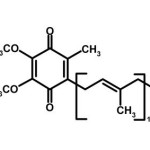 Research appearing in the Journal of the American Academy of Dermatology (2006; 54(2): 234-41) looked at the relationship between conenzyme Q 10 (ubiquinone) levels and malignant melanoma. The study compared 117 patients with melanoma to 125 matched controls who were free of the disease. The average age of the subjects was 55; with 79 of them in the early stages of the disease and 38 in the late stages of the disease. The controls were cancer-free and matched to the subjects for age, sex, occupation, and place of birth.
Research appearing in the Journal of the American Academy of Dermatology (2006; 54(2): 234-41) looked at the relationship between conenzyme Q 10 (ubiquinone) levels and malignant melanoma. The study compared 117 patients with melanoma to 125 matched controls who were free of the disease. The average age of the subjects was 55; with 79 of them in the early stages of the disease and 38 in the late stages of the disease. The controls were cancer-free and matched to the subjects for age, sex, occupation, and place of birth.
The researchers found that the ubiquinone levels in the subjects with the disease were significantly lower than in the controls. Furthermore, ubiquinone levels seemed related to whether the patients would develop metastasis or not. Over 32% of the patients developed metastasis during the 34 month follow-up period. The CoQ10 levels of the patients with metastasis were much lower than the levels of the patients who did not develop metastasis. Metastasis developed in 35 of the 82 melanoma patients with low CoQ10 levels, compared to only 3 of the 35 patients with higher levels. Also, 17 of the patients with low levels died during the course of the study. None of those with high CoQ10 levels died during the course of the study.





